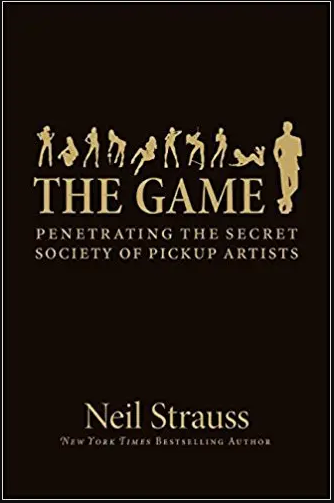In UnHerd, Kat Rosenfield considers the original pick-up artist bible, The Game by Neil Strauss, in light of more than a decade of changes in how moderns approach relationships with the opposite sex:
A decade letter, I’m struck by the astonishing prescriptiveness of this line: the notion that any sexual encounter preceded by flirtation, negotiation, or indeed any assessment of a suitor’s desirability should be understood as “less-than-ideal” — and that any man who seeks to make himself desirable to an as-yet-uncertain woman is doing something inherently sleazy. Granted, the anti-Game backlash began in the form of reasonable scrutiny of controversial seduction techniques like “negging” (a slightly backhanded compliment deployed for the sake of flirtation).
But since then it has morphed into something much stranger: the idea that anything a man does to impress a woman, from basic grooming to speaking in complete sentences, should be viewed with suspicion. Behind this is the same low-trust mindset that leads women to treat every date as a hunt for the red flags that reveal her suitor as a secret monster. If he compliments you? That’s lovebombing, which means he’s an abuser. If he doesn’t compliment you, that’s withholding, which also means he’s an abuser. Other alleged “red flags” include oversharing, undersharing, paying for the date, not paying for the date, being too eager, being five minutes late, and drinking water — or worse, drinking water through a straw.
Today, the turn against pick-up artistry can be understood at least in part as a reaction against some of its more prominent contemporary practitioners, including men such as Andrew Tate, who makes Mystery look like a catch by comparison. But it is also no doubt an outgrowth of a culture in which male sexuality has effectively been characterised as inherently predatory, while female sexuality is seen as virtually non-existent. The question that seduction manuals once aimed to answer — “how do I, a shy young man, successfully and confidently approach women?” — is now, in itself, a red flag, one likely to provoke anything from squawking indignation to abject horror to bystanders wondering if they ought to call the police. That you are even thinking of approaching women just goes to show what a troglodyte you really are. What do women want? The contemporary answer appears to be: to be left alone, forever, until they die — or to meet someone in a safe and sanitised way, via dating app … although even that option is increasingly positioned as inherently dangerous.
Meanwhile, I was surprised upon revisiting The Game to realise that the strategies contained within the book are not just useful but mostly in keeping with more traditional dating and courtship advice, from “peacocking” (wearing something eye-catching or unusual that can act as a conversation starter), to passing “shit tests” (responding with humour and confidence when a woman teases you). Even the much-derided negging wasn’t originally designed with the goal of insulting or belittling women, but rather to teach men how to talk to them without fawning and drooling all over the place. In the end, the message of The Game is more or less identical to the one in popular women’s dating guides, like The Rules or He’s Just Not That Into You: that confidence is sexy, and naked desperation is a turnoff.
And while this may just be a function of one too many viewings of the BBC’s Pride & Prejudice (featuring Mr Darcy, a man in possession of £50,000 a year and an absolutely legendary negging game), I wonder if the aim of seduction guides is, paradoxically, to restore our confidence in the tension, the mystery, and the playfulness of courtship in the age of the casual hookup. Even as we rightly rejoice in the fact that society no longer stigmatises women for desiring and pursuing sex, there is surely still something to be said for subtlety — and just because we aren’t consigned to the role of the passive damsel, dropping a handkerchief on the ground in the hope that the right man will pick it up, that doesn’t mean every woman wants to be horny on main. It’s not just that announcing your desire through a megaphone can seem uncouth; it’s also a lot less exciting than the dance of lingering glances, double entendres, and simmering chemistry that characterises a mutually-desired seduction in the making. Certain people might deride this brand of sexual encounter as “less-than-ideal” for its political incorrectness, but it’s wildly popular — in novels, in films, and in the fantasies of individual women — for a reason.
Meanwhile, the contemporary dating landscape is one in which the sheer fun of dating, courtship, and, yes, falling into bed together has been largely back-burnered in favour of something at once formal and immensely self-serious. In a world of handwringing over sexual consent — in which a man just talking to a woman at a coffeeshop can trigger an emergency response protocol — the stakes of sex itself come to seem unimaginably high, a breakneck gamble where one wrong move will result in a lifetime of trauma (or, if you’re a guy, a lifetime on a list of shitty men). Add to this the proliferation of dating apps, which makes the entire romantic enterprise feel more like a job search than a playground, and the whole thing begins to seem not just fraught but inherently adversarial — a negotiation between two parties whose interests are completely at odds, who cannot trust each other, and where there’s a very real risk of terrible and irreparable harm.




